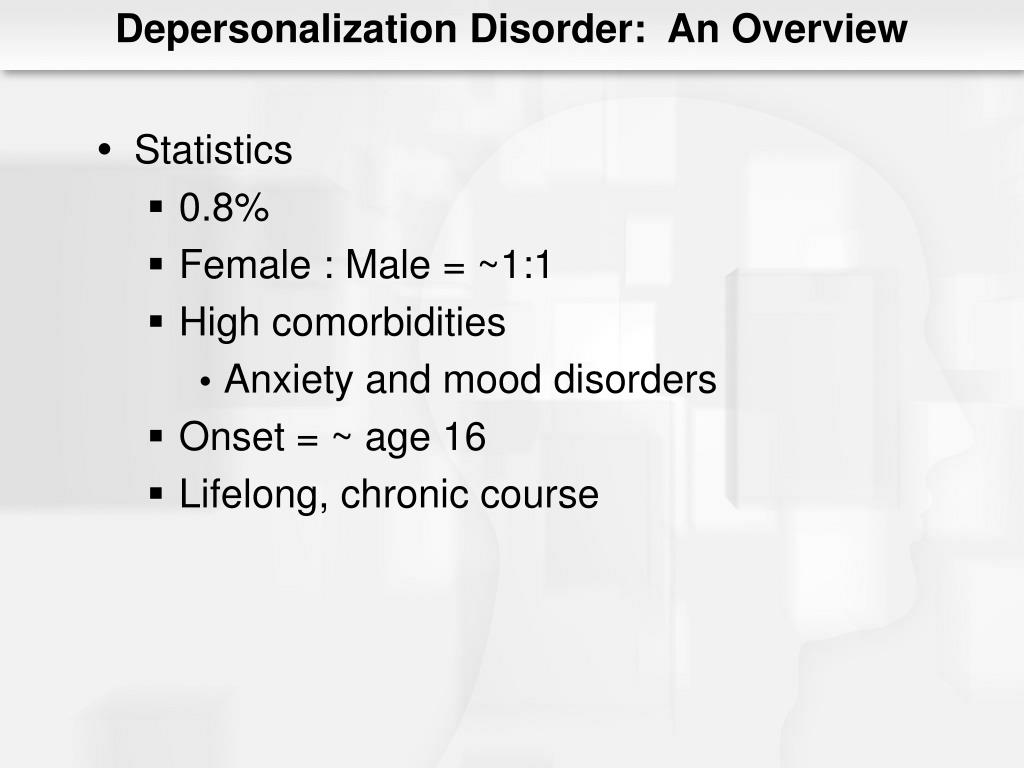

These assertions, whether Platonism, the simulation hypothesis or my insane-god theology, can easily become escapist and nihilistic. I have moral misgivings about claims that reality isn’t, well, real. Pondering derealization leaves me conflicted. These feelings over the years have lost their visceral power over me, but their intellectual aftereffects linger. I feared that at any moment everything might vanish, giving way to-well, I didn’t know what, hence the fear. For months the world felt wobbly, flimsy, like a screen on which images were projected.

My most serious, sustained bout of derealization occurred after a drug trip in 1981, which left me convinced that existence is a fever dream of an insane god. “You’re afraid that if you do tell people, they won’t know what it is,” Camille explains, “and you don’t want people viewing you differently.” I understand these reactions, because derealization can be unsettling, even terrifying. You try to put it out of your mind, and you don’t mention it to others. The feeling disturbs you, so you suppress it. Many people, Camille suggests, undergo episodes of derealization without knowing what it is. Could derealization have inspired all these metaphysical conjectures? As I mention in a recent column, some interpretations of quantum mechanics undermine the status of objective reality. The philosophical stance known as solipsism insinuates that you are the only conscious being in the universe everyone around you only seems conscious. Modern philosophers such as Nick Bostrom postulate that our cosmos is probably a simulation, a virtual reality created by the alien equivalent of a bored teenage hacker. The Buddhist doctrine of anatta says our individual selves are illusory. The eighth-century Hindu philosopher Adi Shankara asserted that ultimate reality is an eternal, undifferentiated field of consciousness. Plato likened our perceptions of things to shadows cast on the wall of a cave.

Sages ancient and modern have suggested that everyday reality, in which we go about the business of living, is an illusion. I’m glad Camille has drawn attention to the disorder, because derealization raises profound philosophical questions. Extreme cases, usually associated with brain damage, may manifest as Cotard delusion, also called walking corpse syndrome, the belief that you are dead and Capgras delusion, the conviction that people around you have been replaced by imposters. Psychiatrists prescribe psychotherapy and medication, such as antidepressants, when the syndrome results in “distress or impairment in social, occupational, or other important areas of functioning.” In some cases, derealization results from serious mental illness, such as schizophrenia, or hallucinogens such as LSD. Some people experience derealization out of the blue, others only under stressful circumstances-for example, while taking a test or interviewing for a job. For simplicity, I’ll refer to both syndromes as derealization.
#Depersonalization vs derealization manual
Lumping the terms together, psychiatrists define depersonalization/derealization disorder as “persistent or recurrent … experiences of unreality, detachment, or being an outside observer with respect to one’s thoughts, feelings, sensations, body, or actions,” according to the Diagnostic and Statistical Manual of Mental Disorders. “It feels like there’s a glass wall between me and everything else in the world,” Camille says in her film, which she calls Depersonalized Derealized Deconstructedĭerealization and depersonalization refer to feelings that the external world and your own self, respectively, are unreal. She recently made a film about this syndrome for her senior thesis, for which she interviewed herself and others, including me. Have you ever been gripped by the suspicion that nothing is real? A student at Stevens Institute of Technology, where I teach, has endured feelings of unreality since childhood.


 0 kommentar(er)
0 kommentar(er)
